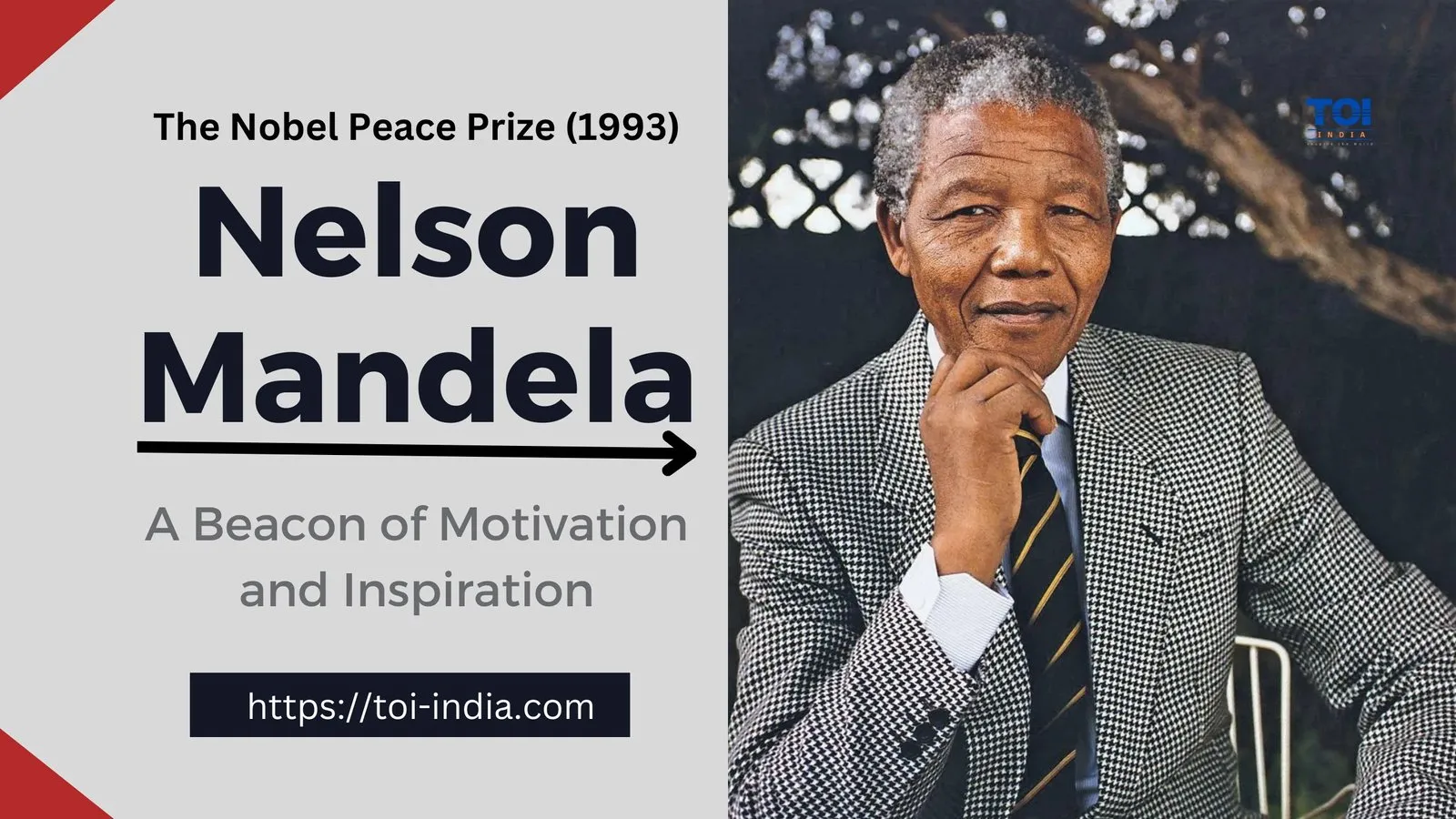Nelson Mandela, a name that resonates with courage, resilience, and unwavering dedication. His life journey is a testament to the power of motivation and inspiration. In this article, we will take you on a remarkable voyage through the life of this iconic figure, exploring his struggles, triumphs, and the indelible mark he left on the world. Join us as we unravel the legacy of Nelson Mandela, a beacon of motivation and inspiration.
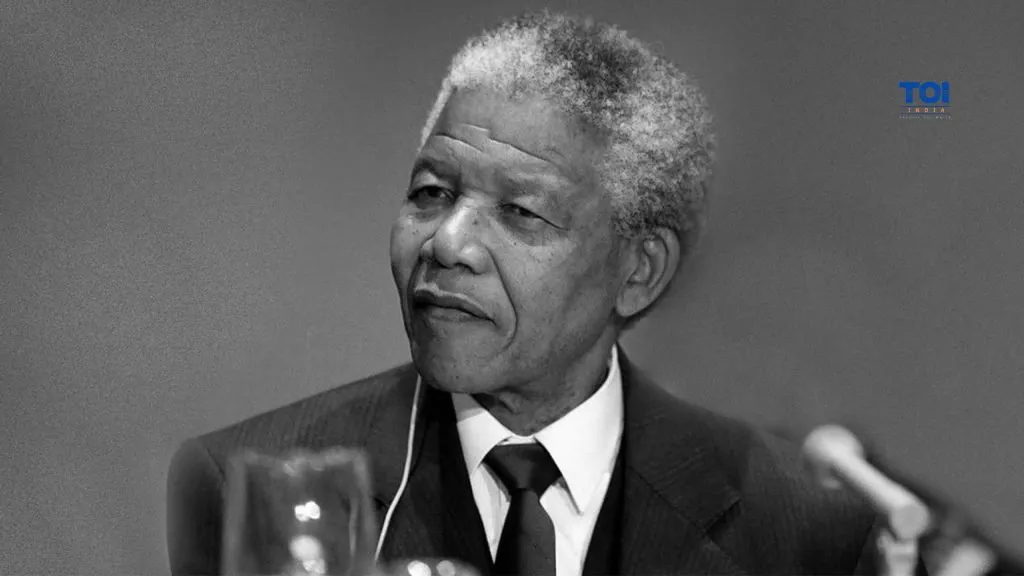
Table of Contents
Nelson Mandela: Early Life and Education
A Humble Beginning
Nelson Mandela’s journey began in the small village of Mvezo, South Africa. Born on July 18, 1918, he belonged to the Thembu royal family. His early years were marked by simplicity and tradition. The values he imbibed during this period, such as respect, humility, and a deep sense of community, became the foundation of his remarkable life.
Education as a Catalyst
Mandela’s thirst for knowledge led him to pursue a higher education, a rare feat for someone of his background during that era. He attended Fort Hare University and later, the University of Witwatersrand, where he studied law. Education served as a catalyst for his transformation into a powerful advocate for justice and equality.

Apartheid Era: A Dark Cloud
Rise of Apartheid
The apartheid system, institutionalized in 1948, cast a dark shadow over South Africa. It enforced racial segregation, discrimination, and oppression. Under apartheid, the black majority was subjected to inhumane treatment, and Mandela couldn’t stand idly by.
Mandela’s Activism
Mandela, along with other anti-apartheid activists, joined the African National Congress (ANC) and engaged in nonviolent resistance. He co-founded the ANC Youth League and began his journey as a tireless crusader against apartheid. His activism led to his first taste of imprisonment, but it only fueled his determination.
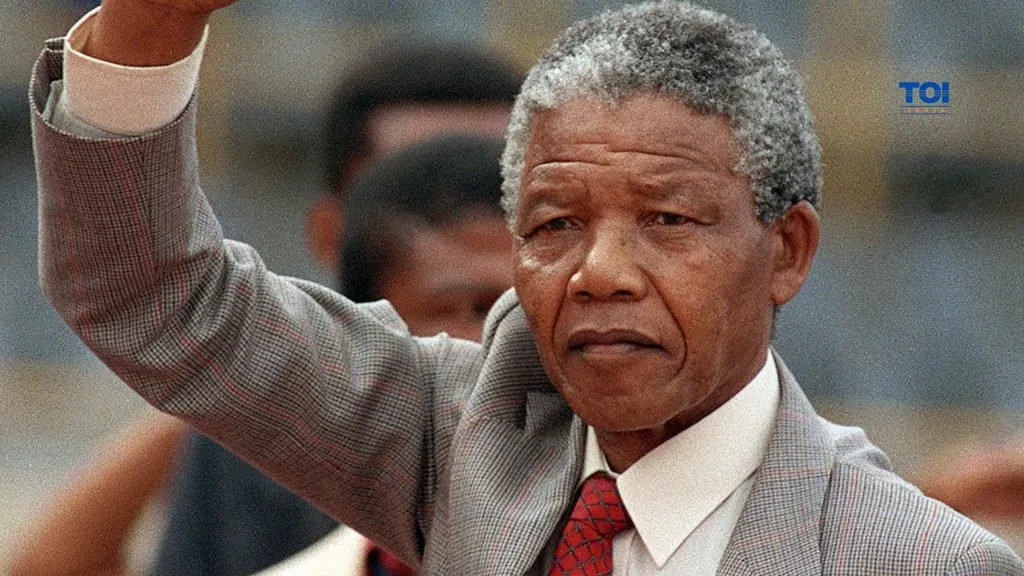
Nelson Mandela: The Long Walk to Freedom
Imprisonment on Robben Island
In 1964, Mandela was sentenced to life imprisonment on Robben Island, a harsh and isolated prison. During his 27 years behind bars, Mandela’s spirit remained unbroken. He used this time to educate himself, foster relationships with his fellow inmates, and continue his fight for justice.
Resilience and Hope
Mandela’s resilience and unwavering hope in the face of adversity became emblematic of his character. His ability to find strength in the most challenging circumstances is a lesson in unwavering determination and motivation.
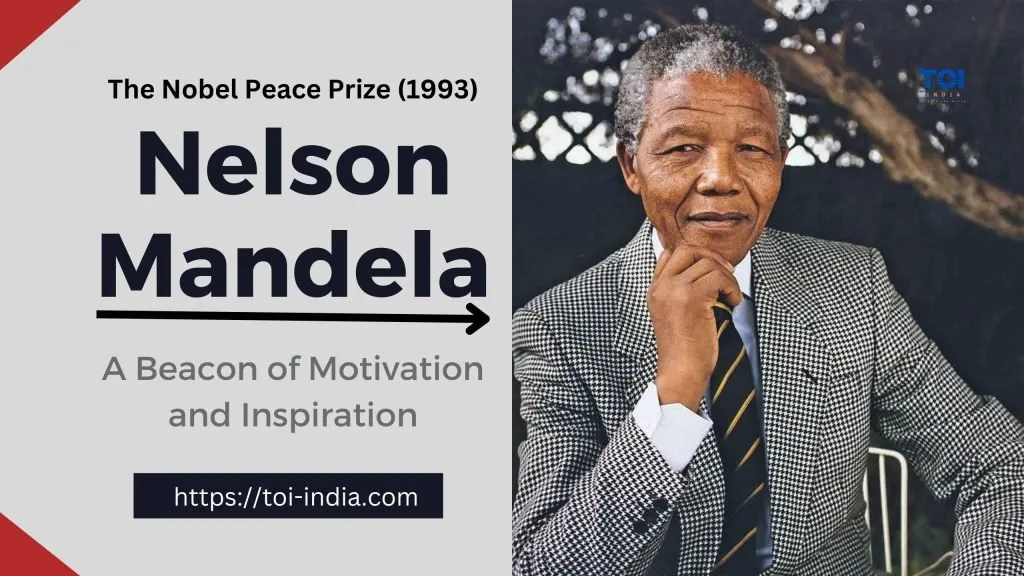
The Road to Reconciliation
Release and Reconciliation
In 1990, after 27 years, Mandela was released from prison. His release marked a turning point in South Africa’s history. Instead of seeking revenge, Mandela chose reconciliation. He worked closely with President F.W. de Klerk to dismantle apartheid and pave the way for free and fair elections.
The End of Apartheid
Mandela’s commitment to forgiveness and unity culminated in the end of apartheid. In 1994, South Africa held its first democratic elections, and Nelson Mandela was elected as the nation’s first black president. Apartheid was officially abolished, marking the end of a dark era and the dawn of a new, inclusive South Africa.
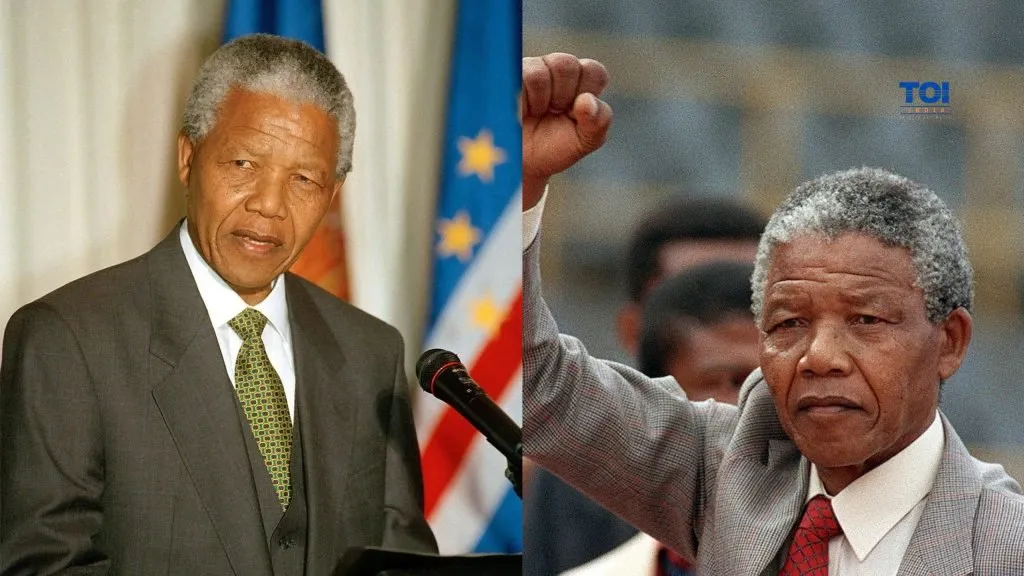
Presidential Years
Leading a New South Africa
As the President of South Africa, Mandela led the nation through a period of profound transformation. His leadership style was characterized by inclusivity, compassion, and a deep commitment to the well-being of all South Africans, regardless of their race.
Transformation and Healing
Mandela’s presidency was marked by initiatives aimed at healing the wounds of the past. He established the Truth and Reconciliation Commission, which allowed victims and perpetrators of apartheid-era crimes to come forward, seek truth, and find closure. This approach to justice and healing is a testament to his inspirational leadership.
Mandela’s Leadership Style
Ubuntu Philosophy
Mandela’s leadership was deeply influenced by the concept of Ubuntu, an African philosophy that emphasizes the interconnectedness of all people. He believed in the power of empathy, compassion, and the idea that “I am because we are.” This philosophy guided his actions and decisions as a leader.
Inclusivity and Compassion
Inclusivity and compassion were not just buzzwords for Mandela; they were the cornerstones of his leadership. He worked tirelessly to create a South Africa where every citizen felt valued and included, regardless of their background.
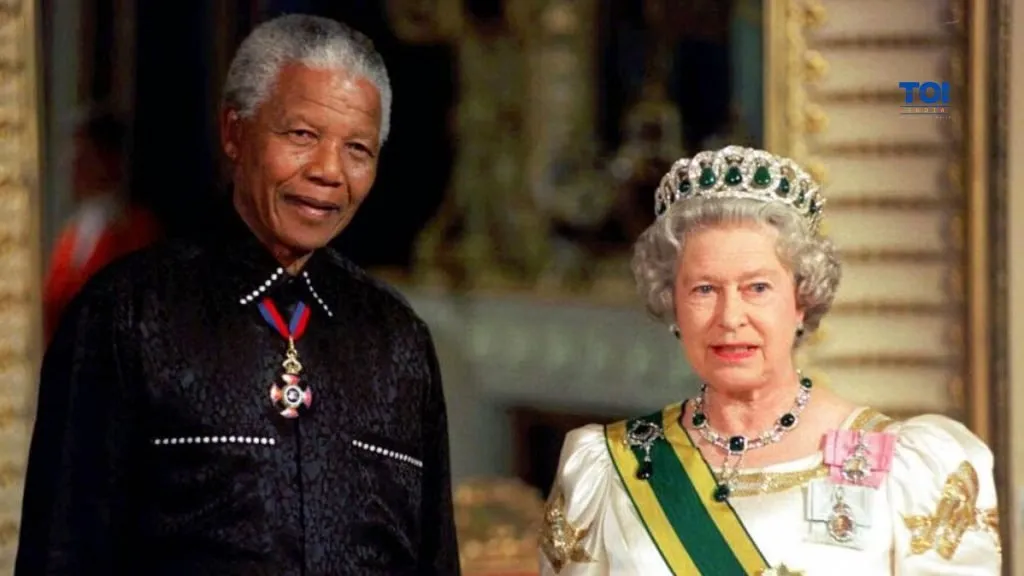
Nelson Mandela: The Nobel Peace Prize (1993)
A Global Recognition
In 1993, Nelson Mandela, alongside F.W. de Klerk, was awarded the Nobel Peace Prize for their efforts to peacefully end apartheid and establish a democratic South Africa. This global recognition highlighted the significance of Mandela’s message of peace and unity.
Message of Peace
Mandela’s Nobel Peace Prize acceptance speech emphasized the importance of reconciliation and building a world where people could live in harmony. His message of peace resonated not only in South Africa but throughout the world.
Legacy Beyond Borders
Mandela’s Global Impact
Nelson Mandela’s impact extended far beyond the borders of South Africa. His story of resilience, reconciliation, and leadership inspired individuals and leaders worldwide. He became a symbol of hope and a model for those working towards positive change.
Continuing Inspirational Work
Even after stepping down from the presidency, Mandela continued his inspirational work. He established the Nelson Mandela Foundation, which focuses on promoting his values and principles, such as education, dialogue, and social justice.
The Mandela Effect
Inspirational Quotes
Nelson Mandela’s words continue to motivate and inspire people of all ages. His quotes, such as “It always seems impossible until it’s done” and “The greatest glory in living lies not in never falling, but in rising every time we fall,” serve as reminders of the power of perseverance and determination.
Mandela’s Universal Appeal
Mandela’s universal appeal lies in his ability to connect with people from all walks of life. His story transcends borders and backgrounds, reminding us that one person’s dedication and resilience can change the world.
Conclusion
In conclusion, Nelson Mandela’s life is a testament to the enduring power of motivation and inspiration. From his humble beginnings to his extraordinary leadership, he showed us the incredible heights that can be reached through unwavering determination and a commitment to justice and equality.
Nelson Mandela’s legacy will continue to shine as a beacon of hope, proving that one person can make a difference. His life story serves as a constant reminder that even in the darkest times, the human spirit can triumph, and justice and reconciliation can prevail.
Frequently Asked Questions
1. Who was Nelson Mandela, and why is he famous?
- Nelson Mandela was a renowned South African leader who played a pivotal role in ending apartheid and became the first black president of South Africa. He is famous for his dedication to justice, reconciliation, and peace.
2. What is the significance of the term ‘Ubuntu’ in Nelson Mandela’s philosophy?
- ‘Ubuntu’ is an African philosophy that emphasizes the interconnectedness of all people and the importance of empathy and compassion. It was a guiding principle in Mandela’s leadership style, promoting inclusivity and understanding.
3. How did Nelson Mandela’s imprisonment on Robben Island impact him?
- Mandela’s imprisonment on Robben Island strengthened his resolve and allowed him to educate himself and build important relationships. It contributed to his resilience and commitment to the fight against apartheid.
4. What is the Nelson Mandela Foundation, and what is its mission?
- The Nelson Mandela Foundation is an organization dedicated to promoting Nelson Mandela’s values, principles, and legacy. Its mission includes education, dialogue, and social justice initiatives.
5. What can we learn from Nelson Mandela’s life and leadership?
- Nelson Mandela’s life teaches us the power of forgiveness, reconciliation, and unwavering determination. His leadership style, rooted in compassion and inclusivity, serves as an inspirational example for leaders and individuals worldwide.
